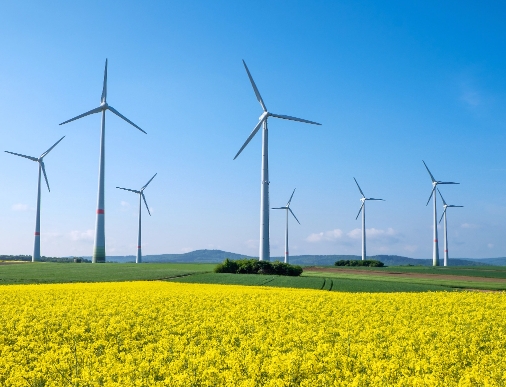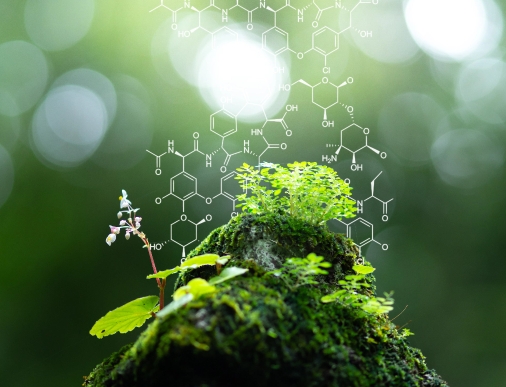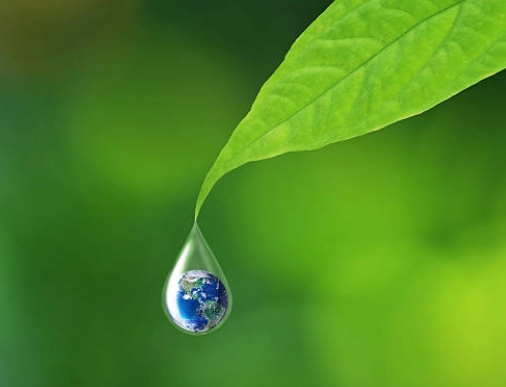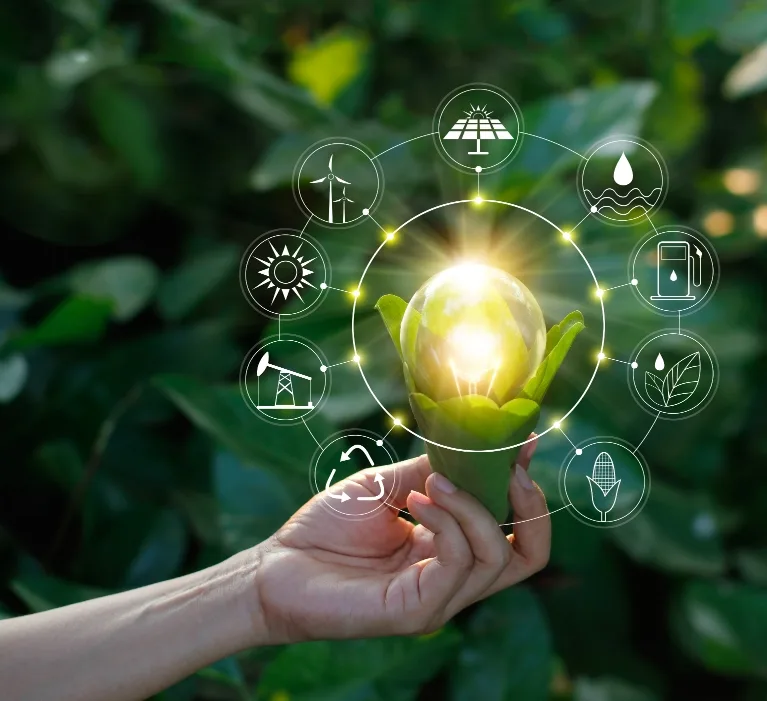Sustainable Practices, Proven Results
Sustainable Solutions for Specialty Chemicals.
We recognize that manufacturing of specialty chemicals is energy-intensive, and we are committed to minimizing its environmental impact. Through innovative technologies and sustainable practices, we actively manage emissions, waste, and water usage. Our initiatives support global climate goals while ensuring responsible operations.


Climate Protection
Guided by Sudarshan’s ESG policy, we are committed to reducing our carbon footprint across operations and the entire value chain. Our climate strategy is built on three core pillars:
- GHG Emission Management: Assess, control, and track greenhouse gas (GHG) emissions to meet decarbonization targets.
- Renewable Energy Transition: Transition toward renewable and clean energy sources to reduce dependence on fossil fuels and improve energy efficiency.
- Resource Optimization:Drive efficient energy and resource use through continuous improvement and innovation.
By proactively managing water-related risks, we aim to protect ecosystems, build resilience against water scarcity, and contribute to the UN Sustainable Development Goals.

Decarbonization Strategy
Our roadmap targets the reduction of both direct (Scope 1) and indirect (Scope 2) emissions, while addressing Scope 3 emissions across our entire value chain. As part of our commitment to the Science Based Targets initiative (SBTi), we aim to achieve a 42.4% emissions reduction by 2030.*
To achieve this, we are focused on:
- Energy Transition: Substituting fossil fuels with renewable or low-carbon alternatives.
- Energy Efficiency: Reducing energy consumption per production unit.
- Process Innovation: Minimizing emissions through technological advancements and optimization.
*With our acquisition of Heubach Group, our sustainability targets are under revision for the new ONE Sudarshan and will be updated shortly.

Life Cycle Assessment
At Sudarshan, we are committed to enhancing the environmental performance of our products and processes. To achieve this, we use the Life Cycle Assessment (LCA) methodology to evaluate the potential environmental impacts of our products, from raw materials to production.
By applying LCA methodologies, we aim to:
- Identify key levers within our manufacturing processes to improve environmental performance.
- Identify opportunities for decarbonization and resource efficiency.
- Guide the sustainable product and process design choices.
LCA results help us quantify our environmental footprint while enabling our customers to make informed, responsible material choices that align with their environmental commitments. Sudarshan employs LCA to inform its operations and promote sustainability across the value chain.

Waste Management
We are committed to sustainable waste management that supports a circular economy. Through our 4R strategy — Reduce, Reuse, Recycle, Recover, we aim to minimize landfill impact and optimize material use.
- Reduce waste at the source.
- Reuse materials wherever feasible.
- Recycle segregated waste streams.
- Recover value or energy from residual waste.
This approach is integrated across production, packaging, and supply chain processes to prevent waste, lower environmental impact, and contribute to long-term sustainability.

Water Stewardship
At Sudarshan, water is a shared resource and a shared responsibility. Our water stewardship strategy is anchored in the ESG policy and shaped by long-term environmental sustainability goals.
We focus on:
- Reducing freshwater withdrawal and improving water-use efficiency across operations.
- Increasing the use of recycled and reused water.
- Maintaining high standards of wastewater treatment and regular monitoring.
By proactively managing water-related risks, we aim to protect ecosystems, build resilience against water scarcity, and contribute to the UN Sustainable Development Goals.

